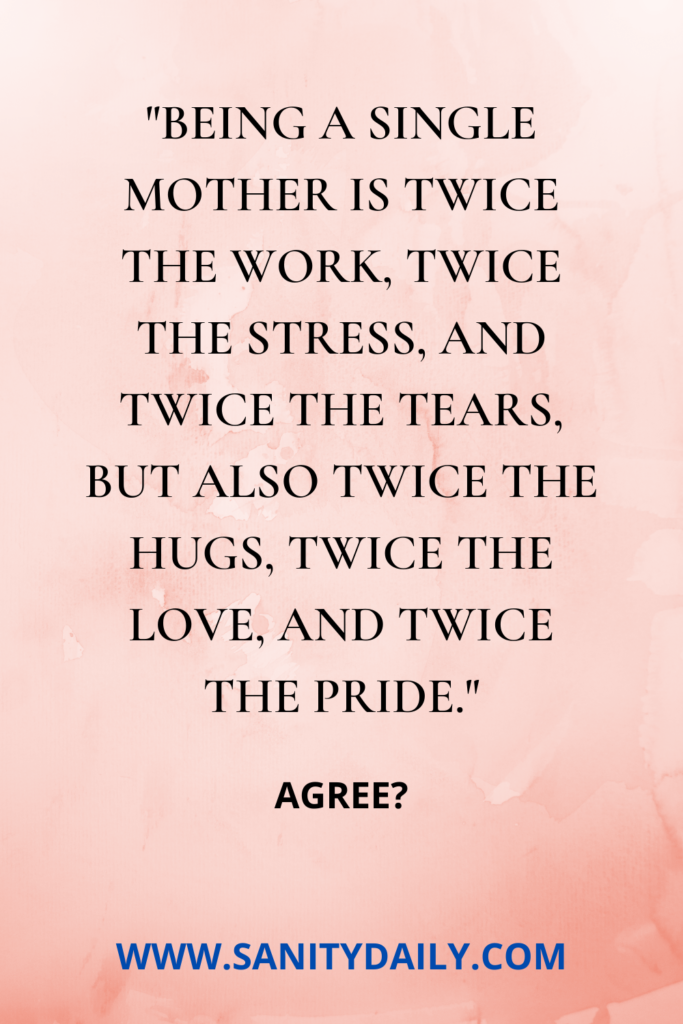Single parenthood presents unique and often overwhelming challenges, regardless of whether it’s a mother or father raising children alone. However, single mothers tend to face more significant difficulties compared to single fathers. From financial strains to social stigma, the struggles that single mothers encounter can be far-reaching and long-lasting.
The Current State of Single Parenthood
Definition of Single Parenthood
At its core, single parenthood refers to a situation where one parent is solely responsible for the day-to-day upbringing of children. This can arise due to various circumstances such as divorce, separation, the death of a partner, or by choice (adoption, surrogacy, etc.). Both mothers and fathers can become single parents, but the struggles they face are not always the same.
Single mothers often have to take on a dual role—acting as both the primary caregiver and breadwinner, while single fathers, though they face their own challenges, tend to navigate different sets of obstacles.
Statistical Overview
Globally, single mothers vastly outnumber single fathers. In the U.S., for example, about 80% of single-parent households are headed by women. According to Pew Research Center data, in 2021, there were approximately 11 million single-parent households, of which 8.5 million were single-mother homes. This disproportionate distribution shows that single motherhood is not only more common but also more scrutinized and challenging.
| Country | Percentage of Single Mothers | Percentage of Single Fathers |
|---|---|---|
| United States | 80% | 20% |
| United Kingdom | 90% | 10% |
| Canada | 73% | 27% |
In other countries, such as the United Kingdom, the situation is even more stark, with 90% of single-parent households led by women. This raises important questions about why the burdens of single parenthood fall so disproportionately on women and why single mothers often face greater struggles than their male counterparts.
Why Are Single Mothers More Common?
Several factors contribute to the higher number of single mothers compared to single fathers:
- Maternal Presumption in Custody: Courts often favor mothers during custody hearings, leading to more women becoming primary caregivers.
- Cultural Norms: In many societies, women are still seen as the default parent, even when both partners are present. This belief extends into single parenthood.
- Financial Responsibility: While single mothers may be more likely to receive primary custody, they also shoulder a larger portion of the financial burden.
Why Do Single Mothers Struggle More Than Single Fathers?
Economic Disparities
Single mothers face a disproportionate financial burden compared to single fathers. This struggle is primarily rooted in systemic economic inequality, including the gender wage gap, the high cost of childcare, and insufficient social safety nets.
Wage Gap Between Genders
One of the most significant challenges for single mothers is the gender wage gap. On average, women earn approximately 84 cents for every dollar a man earns for similar work, and the disparity is even greater for women of color. This wage gap means that, even when working full-time, many single mothers are at a financial disadvantage from the outset.
Additionally, women are often overrepresented in lower-paying industries such as healthcare, education, and retail, while men are more likely to work in higher-paying fields like engineering or technology. This occupational segregation further limits the earning potential of many single mothers.
Example: A single mother working as a nurse may earn significantly less than a single father working as a software engineer, even though both may have similar educational backgrounds. The wage disparity between these fields contributes to the broader economic challenges faced by single mothers.
Higher Costs of Childcare for Single Mothers
Childcare is a significant expense for any parent, but for single mothers, it can be an overwhelming financial burden. According to a study by Child Care Aware of America, the average annual cost of full-time childcare in the U.S. is between $9,000 and $22,000. For single mothers, who often have less disposable income, this can consume a large portion of their earnings.
Single fathers, on the other hand, may have more flexibility in affording childcare due to higher average wages. In some cases, they may also have better access to informal childcare networks, such as help from family members or friends, reducing their overall childcare expenses.
Access to Financial Aid and Social Support
While there are numerous government assistance programs designed to help single parents, such as Temporary Assistance for Needy Families (TANF) and Supplemental Nutrition Assistance Program (SNAP), these programs often fall short of providing enough relief, especially for single mothers. Despite being more likely to qualify for these programs than single fathers, the amount of support offered frequently leaves single mothers still struggling to make ends meet.
Additionally, single mothers are more likely to face housing insecurity due to high rent costs and limited affordable housing options. This further exacerbates the financial strain on women raising children on their own.

